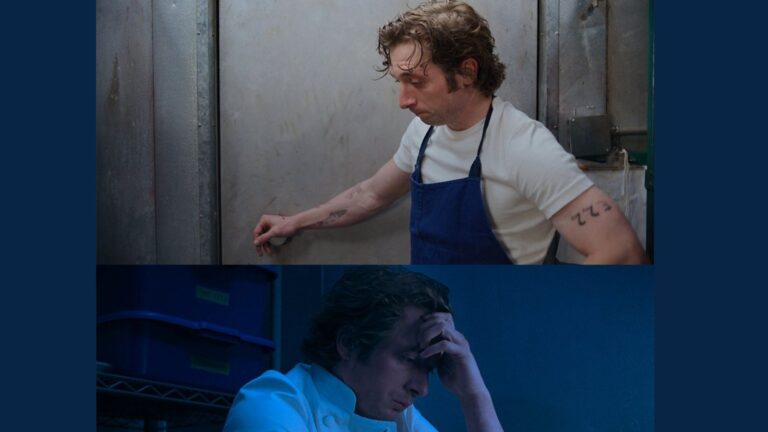bear The show first hit our screens two years into the pandemic, at a time when the hospitality industry in particular was still recovering from the harsh blows of the past few years: global lockdowns, travel restrictions, and social distancing. At the time, this seemed like a death knell for restaurants as we knew them. In this unlikely moment, the show captivated audiences around the world with its dysfunctional but deeply lovable kitchen staff.
The first two seasons Show a balance between aesthetic decoration and grounded realitySeason 1 introduced the story of award-winning chef Carmy (Jeremy Allen White), who, reeling from the suicide of his brother, returns to Chicago to save and revitalize his family's sandwich shop, The Beef. In Season 2, the series' writers delve into an underutilized story arc, chronicling The Beef's chaotic transformation into The Bear and the financial muscle it takes to get a restaurant up and running. The latest season is available on streaming platforms. Disney+Hotstar Disney reported that the show garnered 5.4 million views in India in its first four days on the streaming platform.
what bear Where the film really excels is in its exploration and depiction of the range of experiences found in the high-pressure environment of a professional kitchen: the joy of victory contrasted with the pain of defeat, the sparks of creativity within a rigid hierarchy, and the deep respect for chefs intertwined with the dangers of hero worship.
The show resonates especially deeply in a cultural climate where the harsh realities of restaurant work are finally coming to light. We've seen a shift in how big-name restaurants are coming under scrutiny for how they treat their staff, a sort of pendulum swing from the days of media glamorization. But haven't these issues always been simmering just below the surface? The toxicity, the abusive chefs, the grueling hours, the harsh conditions. And in some ways, Carmy is a white male savior, a trope we've seen so many times before: the tortured genius. Maybe we're wrong? bear How can it be hailed as groundbreaking television when it may simply be glamorizing the very issues it depicts?
As I embark on my own journey towards starting my own food business, I am keenly aware of the human cost behind every beautifully presented dish. In fine dining restaurants, this hidden suffering is even more pronounced. Even in the most positive environments, there are cooks toiling in the relentless heat, potwashers exhausted from standing for hours, servers hiding their pain behind practiced smiles, and chefs missing their children's milestones. At their worst, the scars run much deeper than the burns and cuts of a rigorous kitchen life.

This is not a call to dismantle the world of fine dining. Great, ambitious restaurants have the goal of offering an alternative to soulless fast-food joints and the convenience of delivery apps. But there may be a better way: a model that prioritizes staff well-being alongside culinary artistry. The Bear suggests that Carmy will evolve into a different type of leader, one who learns from the past and seeks to create a more positive work environment. But the show’s inclusion of celebrities with checkered pasts overshadows this message. Thomas Keller’s restaurant Per Se has been dogged by accusations of harsh conditions, and chef Kwame Onwuachi’s 2019 memoir, Notes of a Young Black Chef, details the racism and anger he faced while working there. René Redzepi, who was once known for violent behavior at Noma, has admitted to undergoing therapy to address the issue.
But the show’s real impact lies in its ability to resonate with a diverse audience, engaging both industry professionals and casual viewers. Even those unfamiliar with the kitchen vocabulary and ecosystem find themselves engrossed in the story. Beyond the industry slang and celebrity cameos, “The Bear” captures a universal truth: the bittersweet struggle of pouring yourself into something so demanding and often unrewarding. Carmy’s journey to rebuild your life after loss mirrors what so many of us are experiencing. We come through the challenges of failure, grief, and the process of picking ourselves up again, a little wiser, a little stronger, and maybe even bearing a new wound or two, a testament to the fight and lessons learned. So the next time you stop by a bar or restaurant, take a moment to savor the unseen hustle and bustle that goes on behind the scenes. Then maybe your next bite of food will not only taste better, but feel a little more human.

The author is co-founder of the gastronomic center Indica.
© Indian Express Ltd.
First uploaded: 15 July 2024 12:25 IST


